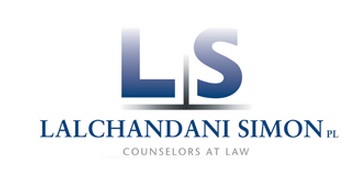We are happy to announce that one of our associate attorneys, Talia Boiangin, will be a project manager in the 2021 LWOW Sprint-X, starting this week. Her team’s topic challenge is “Follow Your Conscience: How can in-house legal teams ensure the ethical use of AI and Big Data?” As a forward-thinking law firm, we value the innovations that technology brings into the legal industry, but we know that such products can sometimes come with risks. We are looking forward to seeing what the team’s solution is for this hot-topic.
LawWithoutWalls (LWOW) is a part-virtual experiential learning initiative that leverages intergenerational, cross-culture, multi-disciplinary exchange to change the mindsets, skillsets, and behaviors of practice and aspiring lawyers. This year, LWOW Sprint-X will be an all-virtual experiential learning program in law, innovation, collaboration, and transformation. Participants collaborate in multi-disciplinary teams composed of sponsors, legal and business professionals and students from law and business schools around the world who work together virtually to create viable solutions to real problems related to the business of law and social justice over the course of a 4-week period in January and February of 2021. In addition to creating and presenting the foundation of a practicable solution, participants learn design thinking principles and new ways of communicating, leading, and approaching collaboration and culture change that can be applied in the future within the organizations in which they work. Once the 4-week period is over, the teams will continue to refine, distill, and incubate their Projects of Worth developed during LWOW Sprint-X. The focus over those three months is on developing a full business plan, challenging assumptions, and prototyping.
Talia’s past experience as an LWOW student hacker makes her perfect for the role of project manager, where she will help assign/divvy up tasks to ensure that her team moves from problem to solution using the infamous five steps of problem-solving efficiently and effectively. In 2019, Talia participated in LWOW X, an all virtual international collaboratory experience, where she and her fellow teammates were tasked with the challenge: How can Distributed Ledger Technology be used to protect the environment? Over a span of four months, her team, consisting of international law and business students, created a solution to help minimize the consumption of single-use plastics on school campuses using blockchain technology. Their “Project of Worth” resulted in a solution that incentivized students into using their re-usable lunchbox. They did this by prototyping an app that tracked use of the lunchbox in the school cafeterias, which allowed students to compete with their friends and earn rewards for re-using. Blockchain technology powered the tracking of every lunchbox QR code scan at the register during purchase and provided a safe and secure way to record any points earned during use. Their Project of Worth won Best Business Case and global recognition.
Lalcahandani simon pl associate Talia Boiangin
2021 LawWithoutWalls (LWOW)
Sprint-X Project Manager

